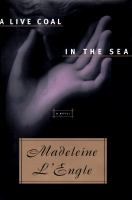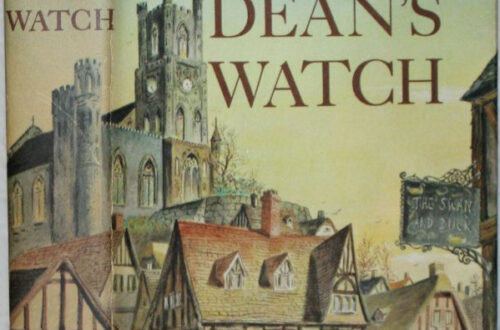A Live Coal in the Sea
 I finished L’Engle’s A Live Coal in the Sea. It was hard to put down once I got going, even though there’s much in it that’s excruciating.
I finished L’Engle’s A Live Coal in the Sea. It was hard to put down once I got going, even though there’s much in it that’s excruciating.
It centers around a family’s attempt to absorb a variety of traumas through a surrounding “sea” of mercy. That’s the best way I can summarize it. The statement from which L’Engle draws her title is from William Langland, who wrote in around 1400, “But all the wickedness in the world which man may do or think is no more to the mercy of God than a live coal dropped in the sea.”
I can say amen to that. That’s the God I believe in. Yet this novel really puts to the test the hypothesis that a human heart can be a transmitter of that kind of mercy. The novel’s main character is the womanly superhero I’ve come to expect from L’Engle: Camilla Xanthakos, a genius who maintains a successful academic career in the field of astronomy, plays complex math games to relax, and is able to love everyone at all times without ever exhibiting impatience or selfishness. She’s also something of an agnostic, and though she marries a rector and speaks of praying, she never becomes declarative about her faith. There’s not really any personal dimension to the God so often spoken of in the story.
Through Camilla’s life pass a succession of vices and abuses in the lives of people she loves. Self-absorption, adultery, homosexual abuse, and incest surface at various points in the story. She survives, and I believe the story is supposed to be read as triumphant. She sees her life as “marvelous” because she’s had an opportunity to learn about mercy, even though early on she speculates, “I’m no longer sure what being happy means… Is happiness only for the very young? Maybe being content is enough.”
I’m wondering if I’m just hopelessly trapped in an evangelical mold in ways I don’t see. I’m not sure I have adequate categories to judge this story (which is why I keep reading L’Engle). It bothers me that the spokesmen for the church in the story have so little to offer. “I think this is one of the situations where there is no right choice,” says the bishop at one point. No right choice? Later, Jesus is regarded in a sermon as making “wrong choices;” he chooses “all the wrong disciples, not the ones God would choose, and they… betray [him].” Wasn’t that betrayal evidence that they were rightly chosen to fulfill their purpose, told beforehand? When Camilla’s son/brother beats up his sister, shoplifts, and attempts incest, he is not disciplined; “love” in the story amounts to facilitating his destructive behavior, and this approach is endorsed by the story’s resident psychologist as well as its resident rector, Camilla’s husband. Was Jesus an enabler like this? Not to me.
On the other hand, the gospel doesn’t promise Jesus as a solution to all problems, and a ticket to easy sailing. It promises forgiveness–mercy. It promises Jesus as a companion in earthly suffering. It promises peace and hope. The story doesn’t lay out a simplified popular gospel, but does justice to the real thing. Maybe I would have been more satisfied to see some peace and hope in the story, and some element of personhood in the God so often talked about. He’s usually equated with the stars–kind of an impersonal cosmic force.
He’s talked about a lot. In fact, the story is carried as much by its dialogues as by its action. Conversations with psychologists, rectors, doctors lay out the ethical and philosophical issues quite instructively. In a lesser author this would have come across as telling rather than showing, but L’Engle handles it skillfully. Her use of flashbacks in the now familiar formula of older-woman-reflecting-on-her-life-in-hindsight is also skillful and smooth.
In the end, I liked the book. It made me think. It certainly kept me interested. And the storyline–with its straightforward exposure of the worst misguided selfishness imaginable–made me so mad at some points that I have to say it was plenty engaging. But there’s something about L’Engle that I haven’t satisfied myself that I understand yet, so I’ll probably keep reading her and keep feeling frustrated!


